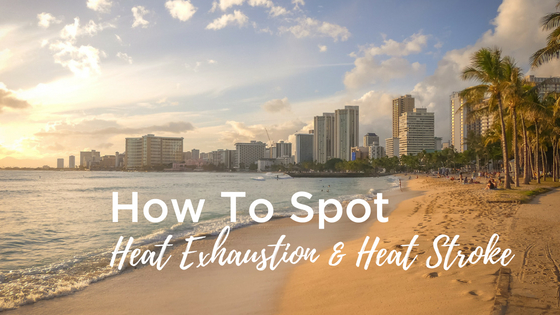As much as we know and recognize that one of the perks of living in South Florida, is being able to use the “I live where you vacation” cliche. We know it’s a gift and a curse. Having the sun shine on you all year has its negatives. Our humidity and excessive heat poses a huge threat to us in the form of heat exhaustion.
Extreme summer temperatures are not only uncomfortable, they are also dangerous for your health. This is particularly true for older adults and children who are more susceptible to illness. Read on to learn more about heat-related illnesses and tips for preventing them.
Stay Cool In The Summer Heat
Heat Exhaustion occurs when the body is not able to sweat enough to cool itself. Symptoms of heat exhaustion include:
- Dizziness, weakness, nausea, headache and vomiting
- Blurry vision
- Body temperature of 101° F
- Sweaty skin
- Feeling hot and thirsty
- Having difficulty speaking
When someone is suffering from heat exhaustion, he/she should move into a cooler place and drink plenty of water immediately.
Heat Stroke is the result of untreated heat exhaustion and includes the following symptoms:
- Sweating
- Unawareness of heat and thirst
- Body temperature rises rapidly above 101° F
- Confusion or delirium
- Loss of consciousness
- Seizure
When someone is suffering from heat stroke, medical personnel should be called immediately, as the condition is life-threatening. Place ice packs on the person’s armpits and groin until help arrives.
Healthy Hints
To avoid heat illnesses in summer temperatures, remember to drink lots of water – even if you are not thirsty. Additionally, wear light-colored, lightweight clothing made of natural fibers and put on a well-ventilated hat. Lastly, avoid leaving air-conditioned areas in the middle of the day if you can. Instead, get things done outside in the early morning or evening when temperatures are cooler.
For more tips, click here to view the American Red Cross recommendations for summer safety.




